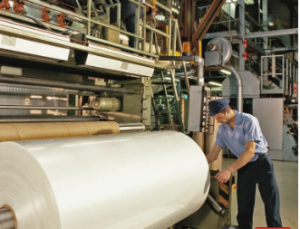
Below are five of the most common plastics used for different applications along with their properties, uses and trade names.
Polyethylene Terephthalate—PET or PETE—is a durable thermoplastic that shows tough resistance to chemicals, high energy radiation, moisture, weather, wear, and abrasion. This clear or pigmented plastic is available with trade names such as: Ertalyte TX, Sustadur PET, TECADUR PET, Rynite, Unitep PET, Impet, Nuplas, Zellamid ZL 1400, Ensitep, Petlon, and Centrolyte.
PET is a general purpose plastic that is made by polycondensation of PTA with ethylene glycol (EG). PET is commonly used for making soft drink and water bottles, salad trays, salad dressing containers, peanut butter containers, medicine jars, biscuit trays, rope, bean bags, and combs.
High-Density Polyethylene (HDPE) is a semi flexible to hard plastic that can be easily processed by catalytic polymerization of ethylene in slurry, solution, or gas phase reactors. It is resistant to chemicals, moisture, and any sort of impact but cannot stand temperatures exceeding 160 degrees C.
HDPE is naturally in the opaque state but can be colored to any requirement. HDPE products can be safely used for storing food and drinks and so it is used for shopping bags, freezer bags, milk bottles, ice cream containers, and juice bottles. It is also used for shampoo and conditioner bottles, soap bottles, detergents, bleaches, and agricultural pipes. HDPE is available under trade names of HiTec, Playboard, King Colorboard, Paxon, Densetec, King PlastiBal, Polystone, and Plexar.
Polyvinyl Chloride (PVC) is present in both rigid and flexible forms as unplasticised Polyvinyl Chloride PVC-U and Plasticised Polyvinyl Chloride PCV-P. PVC can be obtained from ethylene and salt by vinyl chloride polymerization.
PVC is resistant to fires because of its high chlorine content and is also resistant to oils and chemicals except aromatic hydrocarbons, ketones and cyclic ethers. PVC is durable and can withstand aggressive environmental factors. PVC-U is used for plumbing pipes and fittings, wall cladding, roof sheeting, cosmetic containers, bottles, window frames, and door frames. PVC-P is commonly used for cable sheathing, blood bags, blood tubing, watch straps, garden hoses, and shoe soles. PVC is commonly available under trade names of Apex, Geon, Vekaplan, Vinika, Vistel, and Vythene.
Polypropylene (PP) is a strong yet flexible plastic that can withstand high temperatures up to 200 degrees C. PP is manufactured from propylene gas in presence of a catalyst such as titanium chloride. Being a lightweight material, PP has high tensile strength and is highly resistant to corrosion, chemicals, and moisture.
Polypropylene is used to make dip bottles and ice cream tubs, margarine tubs, potato chip bags, straws, microwave meal trays, kettles, garden furniture, lunch boxes, prescription bottles, and blue packing tape. It is available under trade names such as Valtec, Valmax, Vebel, Verplen, Vylene, Oleplate and Pro-Fax.
Low Density Polyethylene (LDPE) is soft and flexible as compared to HDPE. Low Density Polyethylene shows good chemical resistance and excellent electrical properties. At low temperatures, it shows high impact strength.
LDPE is compatible with most foods and household chemicals and acts as a poor oxygen barrier. Because it has very high elongation as a result of its molecular structure, LDPE is used in stretch wraps. This translucent plastic is mainly used for plastic food wrap, garbage bags, sandwich bags, squeeze bottles, black irrigation tubes, garbage bins, and plastic grocery bags. Low density polyethylene is made from the polymerization of ethylene in an autoclave or tubular reactors at very high pressures. LDPE is available in the market under the following trade names: Venelene, Vickylen, Dowlex, and Flexomer.